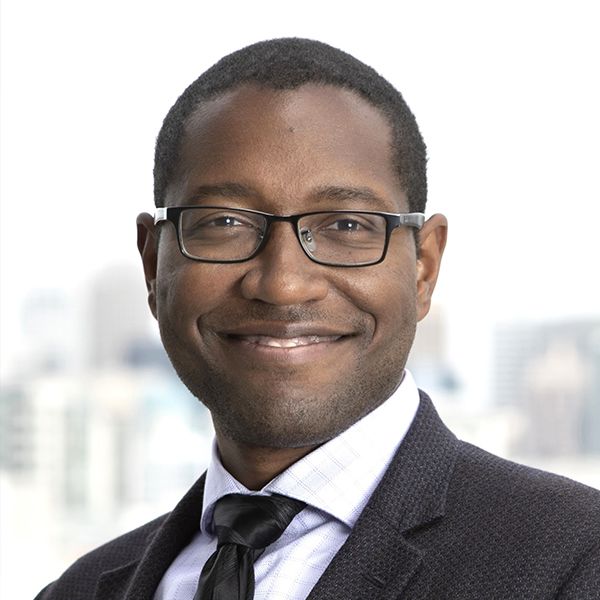2024 Bayer- PCF Young Investigator Award

Multilevel Assessment of Social Needs and Partnering With Community Stakeholders to Prospectively Address Local Barriers to Prostate Cancer Care
Samuel Washington III, MD
University of California, San Francisco (UCSF)
Mentors: June Chan, ScD; Hao Nguyen, MD, PhD; Salma Shariff-Marco, PhD, MPH
Description:
- Non-clinical social needs faced by patients with prostate cancer such as housing instability, food insecurity, and transportation barriers can drive differences in treatment, which result in disparities in clinical outcomes. Strategies to prospectively identify and address the social needs contributing to disparities have not been widely adopted, and actionable data to inform institutions, policymakers, and multilevel interventions to mitigate the resulting disparities remain needed.
- Dr. Samuel L. Washington III is studying how an individual’s social needs affect clinical outcomes such as treatment type, and developing interventions to address these social needs and to reduce disparities in treatment, particularly for underserved patients diagnosed with prostate cancer.
- This project will leverage longitudinal data on ~22,000 patients seen at UCSF and at community urology practices to assess overall and specific social needs of patients diagnosed with prostate cancer, including characterizing variations in social needs/risk burden in prostate cancer patients by race, ethnicity, and geography.
- The team will elicit feedback from local community members and patients with prostate cancer to evaluate and catalogue local community resources tailored to the social needs of patients with prostate cancer.
- A prospective pilot trial will be performed at UCSF to compare the reception and utilization of institutional versus community-sponsored social resources for patients with prostate cancer who screen positive for social needs.
- If successful, this project will quantify how social factors impact cancer care and outcomes, guide institutional efforts to increase social needs screening, and develop sustainable community-partnered strategies that could be widely adapted by healthcare systems of all sizes and locations to reduce racial disparities in prostate cancer.
What this means to patients: Understanding how social needs such as housing instability, food insecurity, and transportation barriers contribute to prostate cancer disparities and identifying actionable targets for intervention remains urgently needed. Dr. Washington’s project will define social needs profiles that influence treatment for prostate cancer across racial groups, geography, and clinical settings, and develop institution-based and community-sponsored social resource interventions to overcome these barriers. This will help to increase equitable access to optimal healthcare and reduce prostate cancer disparities in treatment outcomes.

